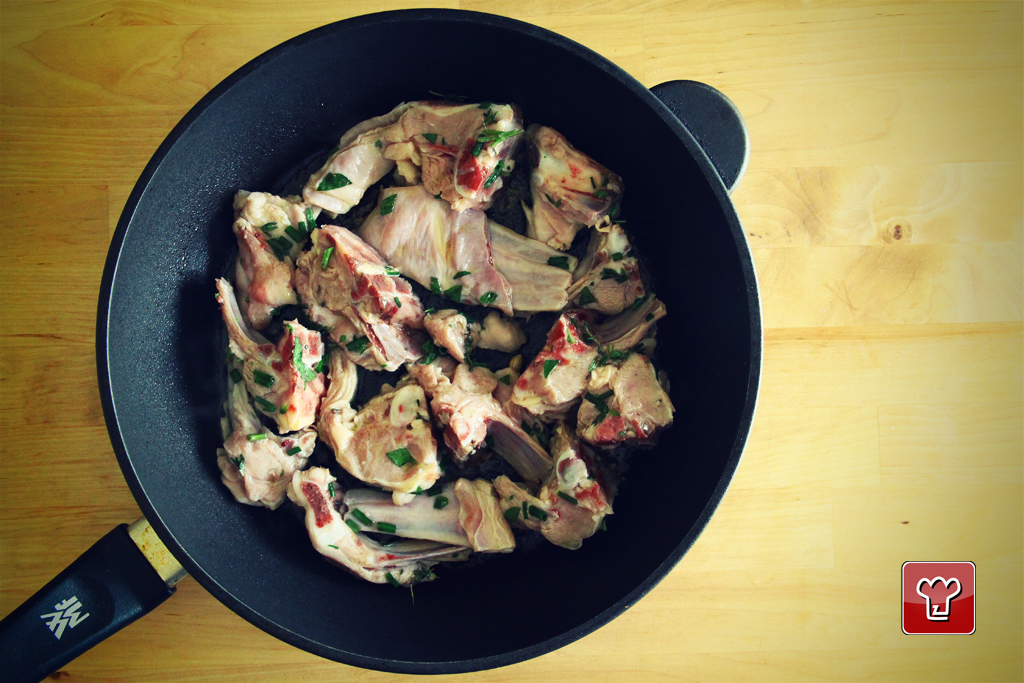Step by step

Brown the meat over a high heat for 5 minutes in some oil
Tips
When preparing a marinade, try to create a perfectly balanced mix of ingredients. The choice of ingredients is up to you, depending on your preferences or the particular recipe that you are following. But bear in mind that you'll need to mix three basic ingredients for the perfect marinade: a fat, an acid and herbs and spices. The fat is usually olive oil, but you can also use milk, butter, cream, lard or coconut milk: it makes the meat more full-bodied and enhances the flavour, avoiding the possibility of excessive drying out during cooking. The acid - which can be wine, vinegar (apple or wine), lemon juice, yogurt, Worcester sauce, Tabasco, or fruit juices, in particular pineapple and apple - has the aim of soaking and ‘cooking’ the meat, leaving it really tender, sometimes almost gelatinous. Be careful, however, this ‘cooking’ process occurs only at the surface unless the pieces of meat are really small. The third component is provided by the herbs and spices, and there it is up to you to choose which to use according to the effect you desire: tarragon, cumin, basil, rosemary, citrus peel – there are many options to flavour and aromatise your meat to your liking. Are we finished? Of course not! Don’t forget to add a pinch of salt, a powerful "chemical reagent" able to activate a reaction between the meat’s juices and the ingredients from the marinade. This reaction allows the meat to absorb better the marinade’s flavour.
Trivia
Marinating meat or fish involves soaking the dish in a liquid made of vinegar or wine to which are added spices or other flavourings. The goal is to soften the meat, remove any excessive gamey smell and to flavour it. A little curiosity about the origin of the term: ‘marinate’ originally meant "to preserve food in good condition during a sea voyage." The purpose, unlike today, was therefore to lengthen the time food could be kept in order to transport it by sea from one city to another.








